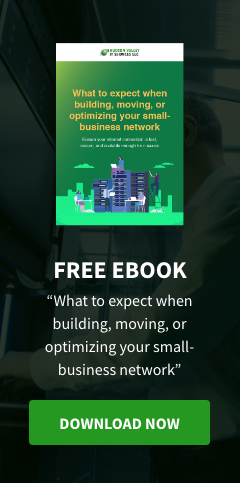Until the next great communication system comes along, email will be here to stay. That means hackers will continue to attack via email. It may even get worse — based on a recent FBI report, tens of thousands of email scams have cost organizations $12 billion from 2013 to 2018.
While there are many robust security tools that can protect your company from complex security threats, some hackers may launch phishing scams, which don’t require highly advanced technology. Phishing scammers rely on human error. They do this by piquing the user’s interest, making false threats, telling a convincing-enough lie, and other social engineering techniques. Even employees in billion-dollar technology companies like Facebook and Google proved highly vulnerable, and all it took for scammers to steal $100 million from them was to ask for it.
As a business owner, you must contend with hackers that attempt to infiltrate your systems on a regular basis. Start by taking advantage of these email security features to avoid falling prey to phishing attacks.
#1. Email filters and plug-ins
An email filtering system must utilize a dependable set of criteria to determine which emails are safe and which ones are not. It’s also important that business leaders choose an email services provider that uses a filtering system with a set of rules that inspect not just the email content but also the mail headers and the sender.
On the other hand, plug-ins such as challenge-response filters (e.g., captcha, puzzle) add an extra layer of protection and are particularly useful to filter spam. Businesses should also consider using a sandbox plug-in to help prevent malicious files from making harmful changes to their system by having their email program operate in a separate environment.
#2. Credentials protections
As a small business owner, you may find it challenging to fend off phishing scams. Fortunately, there are ways to slow down attempts to hack into your critical business applications.
Enable multifactor authentication (MFA) in all your programs and apps to ensure that only authorized users can access company programs and files. With MFA enabled, users will be required to authenticate their identity with extra steps apart from merely entering the right password; they’ll also be required to verify their identity by entering another security code in another device.
It’s imperative that you use email security solutions that encrypt emails before they leave the server. Of course, it also helps to educate your employees about the dangers of social engineering to make sure your staff doesn’t easily fall prey to scammers.
#3. Multilayer email security solutions
A good email filter must also use multiple layers to more effectively filter dangerous emails. That entails filtering a potentially risky email before it enters a server and analyzing it again before it gets delivered to a user’s inbox.
Hackers are pros at disguising fraudulent links as legitimate, so email users need to note that there are links contained in emails that can pass an initial round of security checks because they appear harmless, and will only transform into a phishing link once they’ve entered a mailbox. To protect against that, you need email security software that performs multiple checks on incoming emails.
By contrast, some email attachments that seem malicious may actually be safe. Your system’s email security protocols must ensure that uninfected messages reach the intended recipients to avoid disrupting operations and/or losing files that are necessary and malware-free.
#4. File isolation
In some cases, email security features won’t always be able to detect malicious emails, such as those with file attachments containing macros. Macros are typically exploited by hackers because they can automatically run once opened. Not disabling them from automatically executing commands means they can immediately infect systems and corrupt crucial data.
Some email security features may not always detect unsafe email and/or attachments. In such instances, isolating a file or an attachment is a viable temporary solution that lets users download and open a file on their computers but open the potentially infected file in an isolated container or system.
It’s everyone’s sacred duty to protect their mailboxes from malicious actors. If your business in Middletown, Orange County, or Bergen County wants to make the most out of these email security features but don’t know how, talk to Hudson Valley IT Services’ IT support team today.
Like This Article?
Sign up below and once a month we'll send you a roundup of our most popular posts


